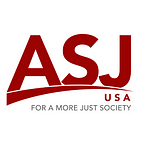Measuring Honduras’ progress towards UN Sustainable Development Goals
by Niko Aberle, ASJ Research Fellow
In September 2015, Heads of State from around the world gathered in New York and agreed to new Sustainable Development Goals for the year 2030. These goals aim to foster human flourishing and equality while protecting the planet. The eradication of extreme poverty, providing stable and productive jobs for all, and protecting terrestrial ecosystems are a few of these ambitious goals. The success of these goals hinge particularly on realizing Goal 16, which targets eliminating violence and constructing effective government institutions, with special emphasis on the justice system.
Violence and corruption can be like locusts, eating up the fruits of progress achieved in other areas. As the world’s leaders put it in the 2030 Agenda for Sustainable Development:
Sustainable development cannot be realized without peace and security; and peace and security will be at risk without sustainable development. The new Agenda recognizes the need to build peaceful, just and inclusive societies that provide equal access to justice and that are based on respect for human rights, on effective rule of law and good governance at all levels and on transparent, effective and accountable institutions. Factors which give rise to violence, insecurity and injustice, such as inequality, corruption, poor governance and illicit financial and arms flows, are addressed in the Agenda […]
As a chapter of Transparency International (TI), Goal 16 most aligns with the Association for a More Just Society’s (ASJ) area of expertise and focus.
This July at the United Nations High Level Political Forum on sustainable development, Honduras and 42 other governments self-reported progress toward these goals. To keep these 43 governments accountable and honest, ASJ and other chapters of TI have independently reported on their respective governments’ progress toward Goal 16. The collective effort also brings attention to the fundamental importance of Goal 16 and pressures governments to pay special attention to meeting it.
ASJ Shadow Report Sheds Light on Government Institutions
First, the good news: Honduras’ anti-corruption legal framework is sufficient or improving in some areas; for example, a new law regulates the financing of political parties and political elections. Furthermore, the initiatives of civil society organizations and multilateral agencies — such as the government’s agreement with ASJ and Transparency International — are bringing increased accountability to public procurement, the private sector, and government anti-corruption agencies.
Despite these advances, much room for improvement remains. In many areas, Honduras’ legal framework remains deficient, as is the case with fiscal transparency and the regulation of revolving doors. Gaining access to information on “beneficial ownership” — the true shareholders and owners who financially benefit from a particular company — is next to impossible in Honduras. Honduras also lacks a law that specifically protects corruption whistleblowers. Introducing separate, dedicated bills that require greater transparency and prevent unfair public-private sector collusion is the first step towards addressing these deficiencies.
In practice, many anti-corruption entities, such as the Supreme Court of Auditors (TSC), fail to fulfill their role because of institutional weaknesses, compromised independence, and/or politicization. Bringing practice in line with the regulatory framework is crucial in the areas of election financing, transparency and integrity in public administration, access to public information, and the protection of activists and journalists. See the overall scores in the following infographic:
While the Honduran government received a high score for asset recovery, this score ought to be qualified. Its use has surged in the last few years as the government and US counterparts have focused on dismantling the country’s powerful drug trafficking organizations. Unfortunately, the tool has been underutilized in corruption cases. Additionally, some question the implications of asset forfeiture on defendants’ right to due process, and innocent employees often lose their jobs when businesses are seized.
On the other hand, while Honduras received a score of zero in the area of fiscal transparency, the reality is actually brighter. A case study by the International Budget Partnership exploring the fragility of the last few years’ budget transparency gains paints a fuller picture of the present budget transparency situation.
The score for integrity in public procurement, the country’s second-highest, also deserves additional attention. The impact of the government’s agreement with ASJ and TI is seen most clearly in this score. With ASJ pressuring five key government agencies to improve the way they purchase goods and services, the government is held accountable to implementing more transparent procurement processes and anti-corruption guarantees such as integrity pacts that hold public and private actors in the health sector to transparency standards. TI recently highlighted this effort in a review of their chapters’ public procurement successes:
“Bidding companies are now also required to sign Integrity Pacts (IPs), which complement the central structural reforms. One policy intention is to place companies that violate IPs on watchlists that prevent them from bidding for public contracts again.”
While the Honduran government still has a long way to go, crucial steps have been taken in this area.
More information on Honduras’ as well as other Latin American countries’ scores are available in the full report here.
